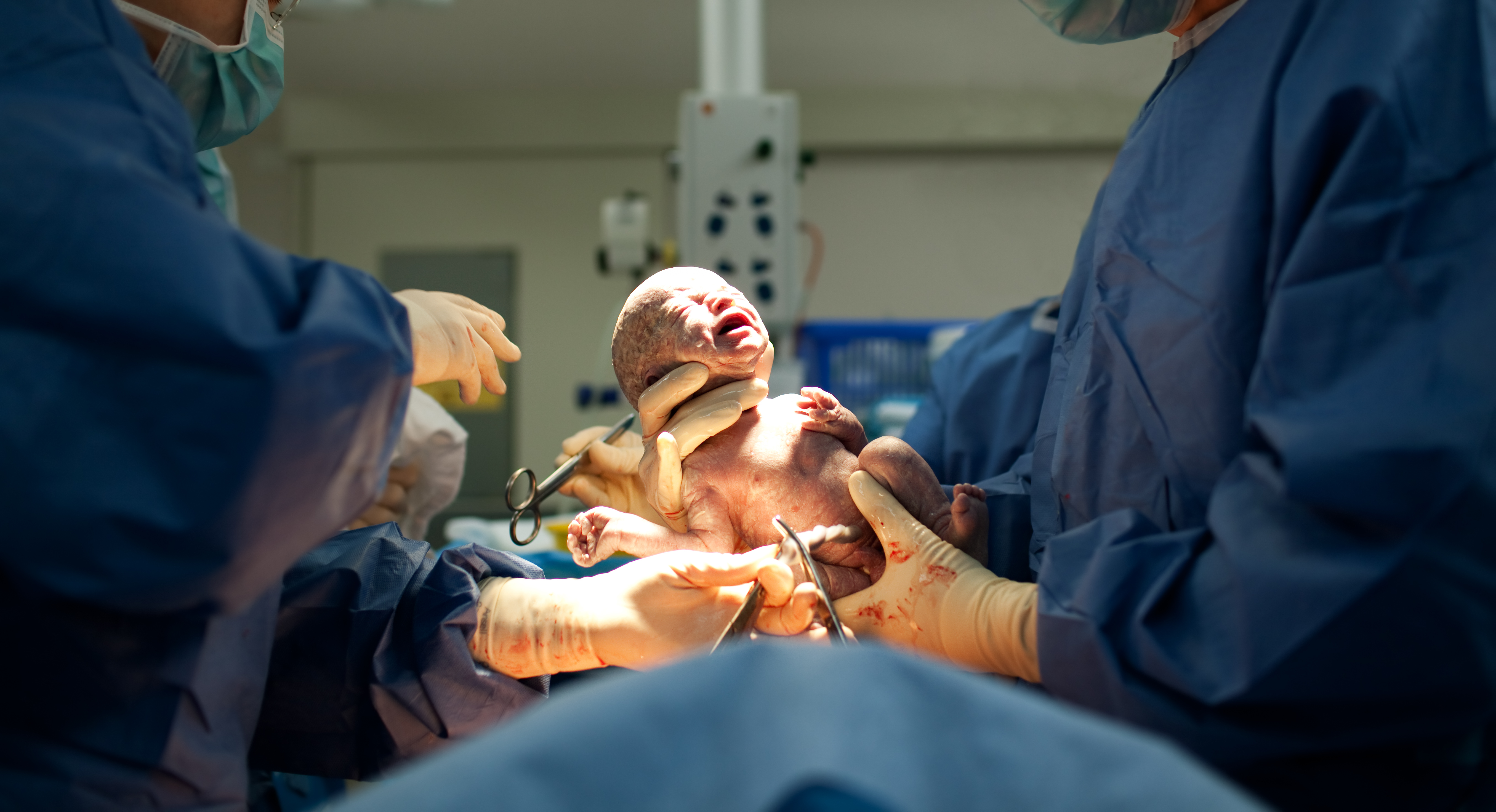
Business & Economics
The algorithm for accessing child care

Personal experience led Dr Cain Polidano to question the impact of C-sections on children’s cognitive development
Published 12 October 2017
I’m an education economist by trade, but I’ve always been interested in health issues. My interest in caesarean births specifically was sparked when my wife was pregnant with our first child. We were waiting around in the hospital before an antenatal class, and I picked up a brochure which had staggering statistics on the number of caesarean births in Australia. That was 2002 – and at that time I remember just being blown away by the numbers. Thirty per cent of all births in Australia are caesarean – which is twice the OECD recommended rate of 15 per cent.
When my wife came into labour, she was overdue, but not by much, and we didn’t think anything was abnormal. My wife’s waters had broken early in the morning and by midday the contractions weren’t yet in full swing. Once it was established that our son was posterior, which means that his head was facing the wrong way around, the medical team decided to perform an emergency C-section.

Before having our second child, we went back to the obstetrician, and realised that after you’ve had a C-section, the chances of delivering vaginally were almost zero. For me this raised the question of what the risks are of having a C-section. And being an education researcher, naturally for me the question was always going around the child’s cognitive development.

Business & Economics
The algorithm for accessing child care
About 18 months ago, my colleague Dr Anna Zhu and I decided to look at the data to see if we could find any differences in cognitive development of C-section children and children who were born vaginally. We had access to really good data for this research, from The Longitudinal Study of Australian Children (LSAC). The LSAC data tracks women and their children from birth upwards. The current cohort would now be at age 12 or 13, but at the time we did our study we only had data up to age nine.
LSAC is a rich dataset - it’s a nationally representative sample of around 5,000 children born between March 2003 and February 2004 and has lots of information on the circumstances of birth, the home environment and how the children are developing.
I think it’s fair to say that both of us were surprised to see that across a range of measures - including NAPLAN in Grade Three, but also other cognitive tests at younger ages – we saw notable, and consistent, differences. Our data showed that children born via C-section had delays in grammar, numeracy, reading and writing. At most, the impacts we measured are about the same as a child in Year Three missing school for 35, out of a typical 205 days, in a school year.

There are several possible causal mechanisms, or stories, that could explain why C-sections may lead to lower child cognitive development. One is the potential impact on the mum of having a C-section. We know that having a caesarean is a major operation, and we know mums are more likely to be admitted to hospital in the first six months after birth if they’ve had a C-section.
All the evidence suggests the early interactions between mum and the baby are crucial in stimulating the child’s development. If mum’s not feeling well, that could impact how they’re interacting, which can affect the child’s development. It’s also well known that mums who have a C-section are less likely to breastfeed and there is a growing body of evidence that links breastfeeding to child cognitive development.

Health & Medicine
Bullied school kids left behind in learning
The other story is that the C-section may impact the child’s health directly. C-sections have been associated with an increased risk of ADHD, Autism Spectrum Disorder, obesity, asthma and allergies - so the increased risk of health conditions might be a channel which affects child cognition as well.
Then of course there’s the impact of having a C-section on the child’s gut. We couldn’t really test the gut mechanism – for that you would need to recruit potentially hundreds of children and continuously take faecal swabs for analysis. Those kinds of studies are too expensive at the moment. But what we can at least test are the other channels – to rule them out. We found they only explain up to 29 per cent of the cognitive gap, which still leaves most of the gap unexplained. So, our results leave open the possibility that these differences are down to the gut.
Studies have shown there are differences in the composition of the microbiota up to age seven. So, once we did the hard numbers, we went across the road to the University of Melbourne’s Department of Physiology and spoke to Professor Joel Bornstein, a neurophysiologist who specialises in the enteric, or gut, nervous system. Based on studies Joel had done with mice at least, he agreed that the gut story could explain the result.

Health & Medicine
Why do women suffer nausea during pregnancy?
Mostly the response to our research has been positive. We have had some reactions from concerned parents who are worried about the implications of the study for their children, especially in cases where they didn’t have a choice about whether they had a C-section. I sympathise, because it’s the same situation I am in.
We want to assure other parents that the differences in cognitive ability are relatively small and it’s not clear how they will grow over time or whether they apply equally to all C-section births.
At the same time, we think it’s important to get the message out there – especially for mums who do have a choice about whether they go down the C-section route or not - that they may at least take these risks into consideration.
For mums who have already had a C-section, it’s important to remember the home environment makes much more of a difference to a child’s development long-term than their mode of delivery.
- As told to Victoria George, University of Melbourne
Banner image: Lucienne Champ/Flickr